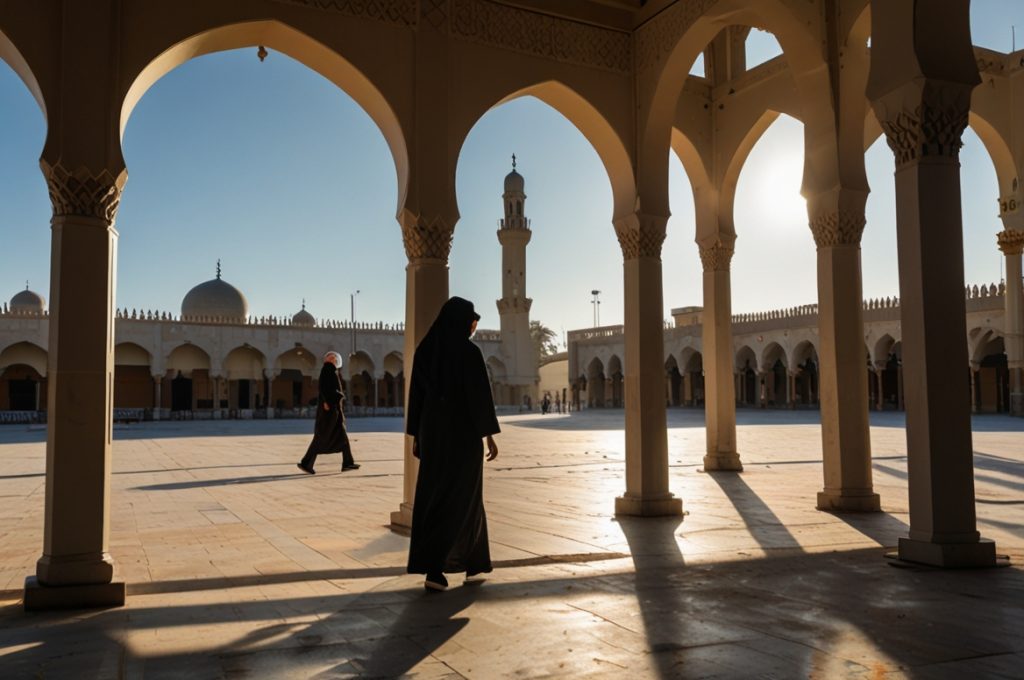Dhuhr Prayer in Islam – Embracing the Midday Connection with Allah

In the rhythm of a Muslim’s day, the Dhuhr prayer in Islam holds a sacred pause—an invitation to reconnect with the Creator during the hustle and bustle of midday. As the second of the five daily prayers, Dhuhr, or the midday prayer, reminds believers of balance, presence, and peace. Understanding its timing, spiritual benefits, and practical role in daily life reveals the beautiful harmony that Islam encourages between worship and worldly responsibilities.
What Is the Dhuhr Prayer?

Dhuhr is one of the five daily salah (prayers) mandated in Islam. It is performed after the sun passes its zenith—the moment when the sun is at its highest point in the sky and begins its descent westward. Known as the midday prayer, Dhuhr marks the start of the afternoon and serves as a powerful spiritual checkpoint that renews a Muslim’s connection with Allah.
Dhuhr is particularly significant because it falls during a time of day when most people are deeply engaged in work, study, or daily tasks. Pausing for prayer at this moment is not just an act of worship, but a conscious return to spiritual mindfulness.
Dhuhr Time and Conditions

The Dhuhr prayer time begins shortly after the sun crosses its zenith and extends until the time of the Asr prayer. While the exact timing varies depending on geographical location and season, many Islamic apps, mosques, and websites provide accurate daily Islamic prayer times based on local coordinates.
It’s essential that Dhuhr is performed within this window, as the timeliness of each prayer in Islam is deeply rooted in obedience and discipline. According to Prophet Muhammad (peace be upon him), one of the most beloved deeds to Allah is prayer performed at its proper time.
Number of Rak‘ahs in Dhuhr Prayer
The Dhuhr prayer consists of four rak‘ahs (units of prayer). However, many Muslims add additional non-obligatory rak‘ahs for extra reward and spiritual benefit:
- 4 rak‘ahs Sunnah Mu’akkadah (confirmed Sunnah) before the obligatory prayer
- 4 rak‘ahs Fardh (obligatory)
- 2 rak‘ahs Sunnah Mu’akkadah after the Fardh
These additional rak‘ahs reflect the emphasis the Prophet (peace be upon him) placed on this prayer, encouraging believers to embrace the full spiritual experience of Dhuhr.
The Spiritual and Practical Significance of Dhuhr

The importance of Dhuhr lies not just in its timing, but in its purpose. Spiritually, it serves as a midday retreat for the soul—breaking the monotony of the day with moments of reflection, humility, and remembrance of Allah. It shifts one’s focus from material pursuits to eternal values, refreshing both mind and heart.
Practically, Dhuhr also teaches discipline and time management. In the modern world, where time often slips away unnoticed, scheduling daily prayer helps build mindfulness and structure into one’s day. It is a gentle reminder that worldly success should never eclipse spiritual growth.
Prophet Muhammad (peace be upon him) said:
“The first thing a person will be questioned about on the Day of Judgment is the prayer. If it is sound, then the rest of his deeds will be sound…”
(Narrated by al-Tabarani)
Balancing Work, Life, and Dhuhr Prayer

One of the most frequently asked questions is how to observe salah during work hours, especially Dhuhr. In Islam, prayer is an individual obligation, but it is also designed with human life in mind. Whether one works in an office, attends school, or travels, Dhuhr can usually be performed within a short break.
Muslims are encouraged to seek prayer-friendly environments and plan their day to include time for salah. Some tips for balancing Dhuhr with a busy schedule include:
- Setting reminders or alarms for Dhuhr time
- Finding a quiet space or prayer room at work or school
- Communicating with employers about religious accommodations
- Praying during lunch breaks, as Dhuhr often aligns with these hours
The Qur’an beautifully states:
“Indeed, prayer has been decreed upon the believers a decree of specified times.”
(Surah An-Nisa, 4:103)
This verse emphasizes the significance of performing prayer on time, while also reassuring believers that Allah rewards every sincere effort to prioritize worship.
Conclusion
The Dhuhr prayer in Islam is more than a ritual—it is a rhythm that brings spiritual alignment to the day. Amid work meetings, school lessons, and worldly distractions, Dhuhr offers a sacred pause—a chance to cleanse the heart, refocus the mind, and draw closer to Allah.
Understanding Dhuhr time, its importance, and how to integrate it peacefully into our modern lives allows us to nurture both our faith and our daily responsibilities. In embracing Dhuhr, we embrace balance, purpose, and the tranquility that only sincere worship can bring.




